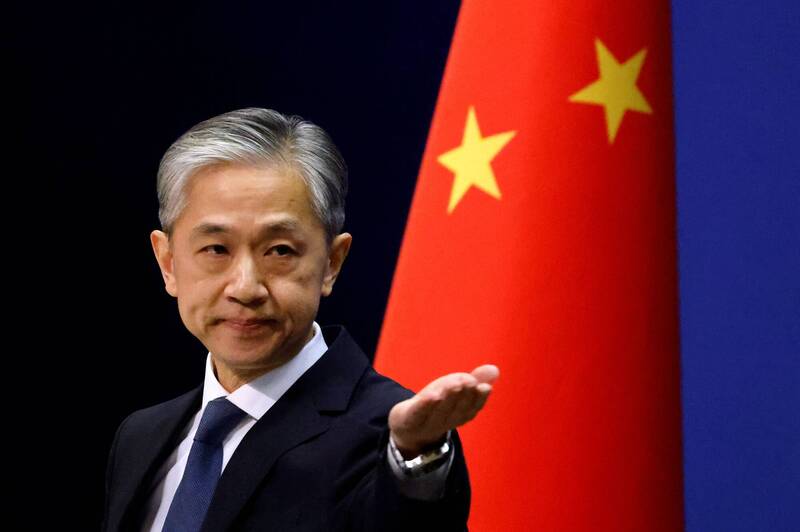The Prime Minister of Japan and the Prime Minister of the United Kingdom signed the "Access Agreement" on the 11th.
Regarding the joint view of China as a "challenge" by Britain and Japan, Chinese Foreign Ministry spokesman Wang Wenbin (pictured) hit back, stating that China is a "partner" rather than a "challenge".
(Reuters)
[Instant News/Comprehensive Report] Japanese Prime Minister Fumio Kishida, who is currently on a visit to five European and American countries, signed a "Reciprocal Access Agreement" with British Prime Minister Rishi Sunak on the 11th to allow the two sides to station troops on each other.
The Chinese side strongly criticized Britain and Japan for seeing China as a "challenge" and stated that China is a "partner" rather than a "challenge".
According to comprehensive foreign media reports, a defense agreement "access agreement" signed between Britain and Japan on Wednesday allows the two countries to deploy troops on each other's territory, and both countries describe China as a "challenge" in the Asia-Pacific region.
This move aroused dissatisfaction in China. Chinese Foreign Ministry spokesman Wang Wenbin criticized: "The Asia-Pacific region should focus on peaceful development, not an arena for geopolitical games."
Wang Wenbin further emphasized that China is a cooperative partner of all countries and is not a challenge to any country.
Please read on...
Wang Wenbin also added that the so-called "defense cooperation" should be conducive to enhancing mutual understanding, trust and cooperation among countries. There is no need to create imaginary enemies, and it should not bring old thinking such as "group confrontation" among countries to the Asia-Pacific region, causing shocks for no reason. .
The "Access Agreement" is reportedly the first such agreement Japan has signed with a European country.
In addition to strengthening the defense and security cooperation between Britain and Japan, the agreement also allows the two sides to deploy troops on each other's territory. For the UK, this is undoubtedly a major milestone in the UK's geopolitical tilt towards the Asia-Pacific region.
Jonathan Eyal, an analyst at the Royal United Services Institute, said Japan was seeking to strengthen defense ties in the face of Russia's invasion of Ukraine and China's growing military expansion. mobility, which Japan currently lacks."
